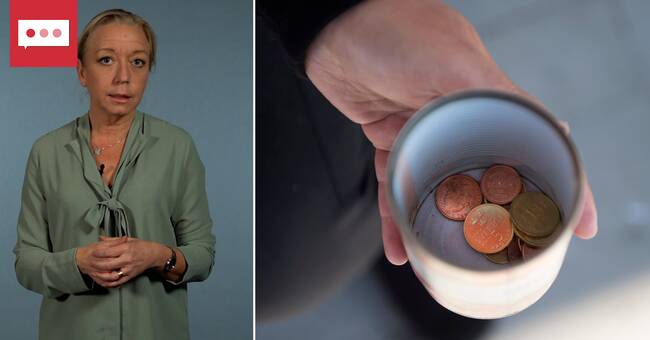A party on the ropes, an issue that divided government alternatives and something that the vocal middle class in the big cities experienced as a problem in their everyday lives.
It was the ingredients that gave the begging issue party political explosiveness ahead of the 2018 election.
Fitted as a symbol
The moderates were the driving force.
One year before the election, the party was at 16 percent in the polls, Anna Kinberg Batra (M) was on her way away and there was a dead race against the Social Democrats in the profile issue law and order.
A new criminal policy program with a national ban on begging as a parade number was seen as an important piece of the puzzle to reverse the trend.
Going harder for begging also suited as a symbol of the turnaround in migration policy, where the Moderates have long struggled with voters not trusting them.
The Social Democrats, who had said no to a ban on their congress six months earlier, replied that they were open to talks.
A common answer for parties who want to try to disarm a difficult question.
Beggars on the streets simply rhyme badly with the ambition of a "stronger society and a safer Sweden".
Or as the former Prime Minister Göran Persson (S) put it in an interview with the podcast Kvartal the same autumn:
- For me, the whole resistance has been based on a left-wing position - in Sweden you should not have to kneel to support yourself.
You must stand up and demand your right and you must work.
Despite the high pitch, not a big election issue
The fact that public opinion was on the side of the Moderates made the issue even more problematic for the large governing party.
Every second S voter wanted to see a ban.
A few months later, the election strategy was launched where one goal was to play a draw against the Moderates in matters of migration and crime.
A clearer answer to the begging question was included in the plan.
But the party was divided.
It ended with a compromise that meant that it would be easier for the municipalities to act locally.
But not even that was presented as an election promise.
The internal revolt against the strict migration policy that Stefan Löfven (S) presented in early May made the election strategists turn a deaf ear.
Internal strife is a sure way to scare voters away.
But despite the high tone, the issue was not very big in the election.
After a term of office marked by the migration issue, the election sprint was more about classic election issues such as healthcare, pensions and taxes.
It is possible that the question will gain momentum
Today, begging has disappeared from the national political agenda.
One explanation is the pandemic, another that the Supreme Administrative Court has given the green light to local bans.
The fact that city voters got used to seeing beggars on the streets also contributes.
But can the question of begging be big again before the 2022 election?
It is entirely possible, especially if law and order becomes a crucial election issue.
A national ban on begging unites M and SD and can, just like last time, serve as an example of wanting to go further than the Social Democrats in judicial policy.
The fact that the government is divided also makes the issue attractive to the right-wing opposition.
In addition, Ulf Kristersson (M) no longer needs to take into account the division between the former alliance parties.
But for the issue to be an election winner, voters must be on the train and once again see begging as a problem.
And it is far from certain after a pandemic that is likely to make traditional left-right issues such as the economy, welfare and jobs more important to voters again.

